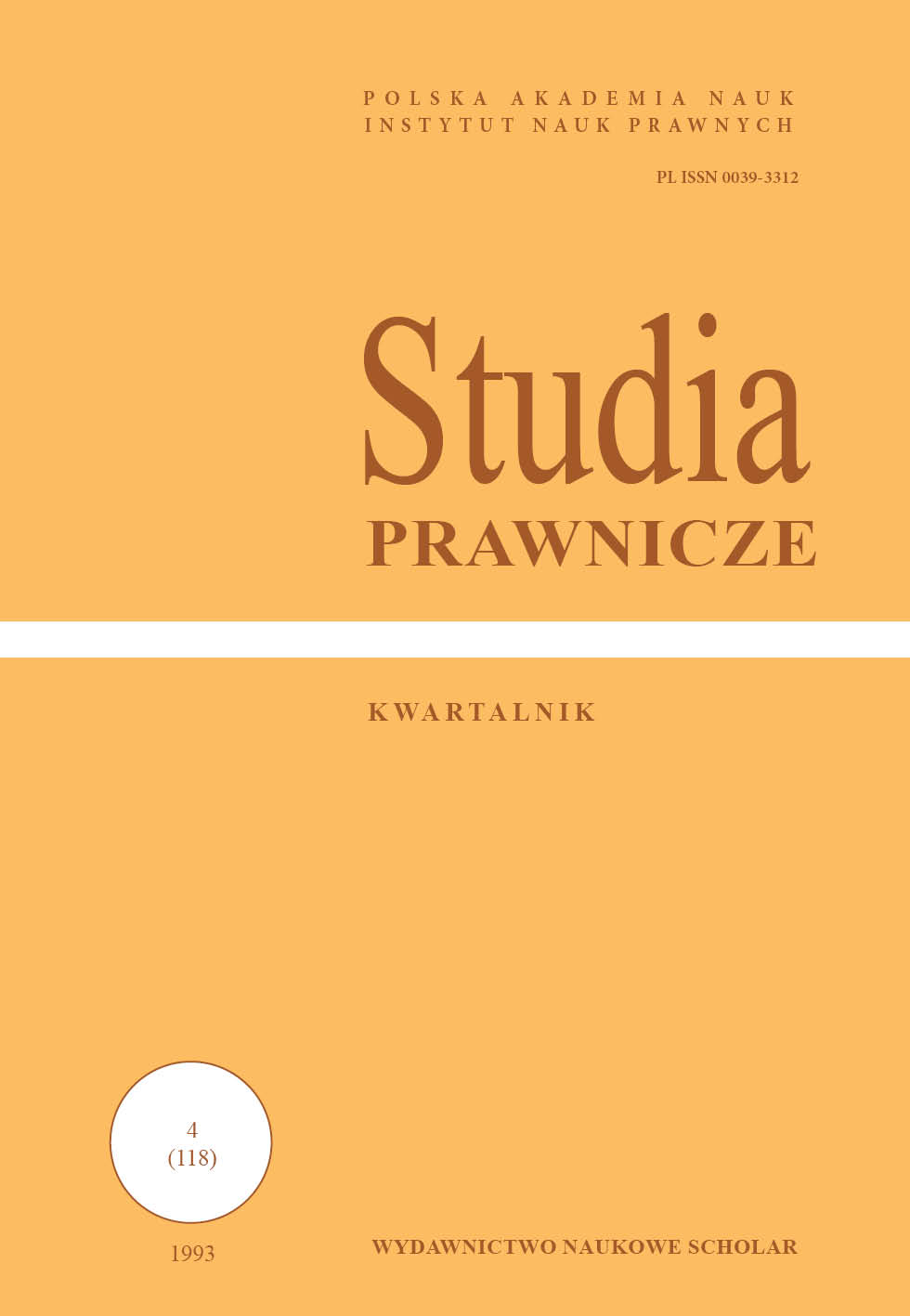Status prawny dziecka pochodzącego z postmortalnej inseminacji albo postmortlanej implantacji embrionu
Legal status of a child resulting from post-mortem insemination or post-mortem embryo implantation
Author(s): Andrzej DyoniakSubject(s): Law, Constitution, Jurisprudence
Published by: Instytut Nauk Prawnych PAN
Keywords: legal status; in vitro fertilisation; embryo; preservation of rights; child
Summary/Abstract: The level of development of modern technology makes it possible to store gametes or embryos, even for long periods of time. As a result, it has become possible to inseminate a woman with a dead man's sperm or to implant a woman with a embryo of a sperm donor after the man's death.The Polish legal system, although adapted to natural procreation, takes into account the possibility of determining the legal status of a child born after the death of the father using the construction of the presumption of the child's origin from the marriage (Article 62 § 1 of the Family and Guardianship Code) or the presumption of paternity (Article 85 § 1 of the Family and Guardianship Code). Inheritance law links the acquisition of the status of a heir to the fact of being alive at the time of the testator's death (Article 927 § 1 of the Civil Code). A child already conceived at the time of the opening of the inheritance may also inherit if it is born alive (Article 927(2) of the Civil Code). The legislator thus intends to extend inheritance rights to a child who was born after the father's death, but was already conceived at the time of his death. The issue of post-mortem insemination and fertilisation performed after the death of the woman's husband touches on two important issues: the postulate of the child being born into a complete family and the right of the embryo to life (in the case of fertilisation). The family is the most suitable environment for raising a child; hence, with the existing reservations regarding artificial insemination, and even more so those related to embryo implantation, some jurisdictions allow them to be performed on married women (possibly also women in a long-term partnership); however, there is fundamental opposition to such procedures being performed on single women.
Journal: Studia Prawnicze
- Issue Year: 118/1993
- Issue No: 4
- Page Range: 47-54
- Page Count: 8
- Language: Polish

